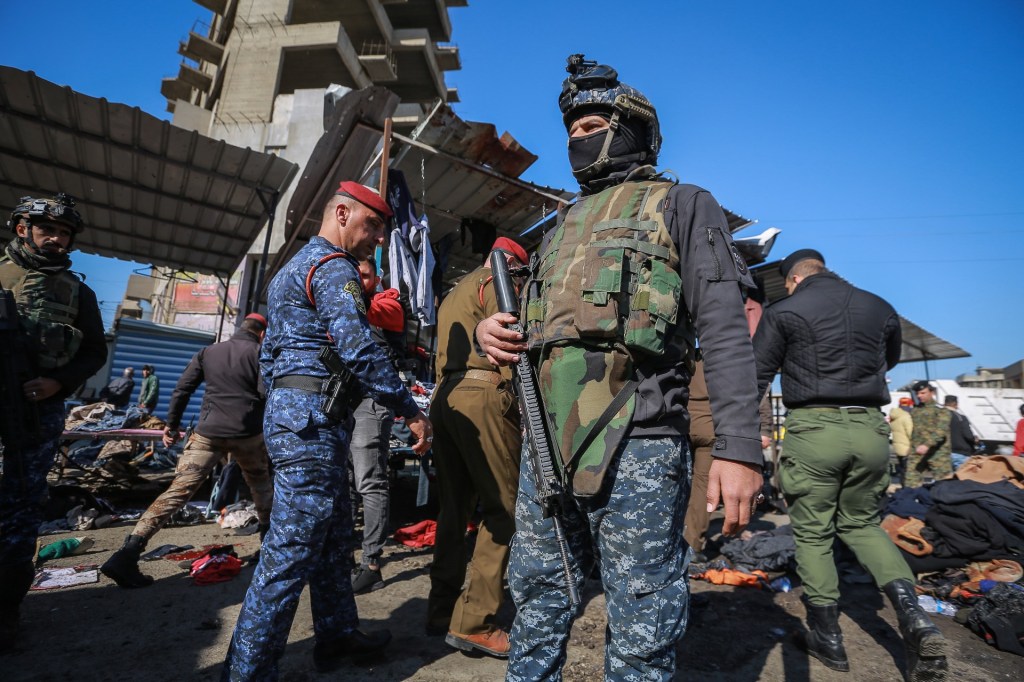While much of the world’s attention focused on Paris in the aftermath of the terror attacks that rocked the French capital on Friday, another city reeled from a separate brutal attack claimed by the Islamic State (IS).
A pair of bombings on Thursday in Beirut killed at least 43 people and wounded more than 200 others. It was one of the worst terror attacks Lebanon has seen in years.
Videos by VICE
On Sunday, Lebanese Interior Minister Nuhad Machnouk announced that nine people have been arrested in connection with the attacks, which originally targeted a hospital.
Related: Why the Islamic State Attacked Paris — And What Happens Next
“The detained include seven Syrians and two Lebanese, one of them a (would-be) suicide bomber and the other a trafficker who smuggled them across the border from Syria,” Machnouk said in a televised press conference.
IS said in a statement posted online that its members set off two bombs in the southern Beirut suburb of Borj al-Barajneh. The first was a bike loaded with explosives that blew up at around 6pm local time on Thursday.
The second suicide bomber blew himself among a crowd of onlookers that had formed around the site of the first explosion. Video footage shows the moments before the second blast.
IS-linked social media accounts quickly celebrated the bombing and shared photos of the aftermath.
Media coverage of the attacks in Paris outweighed the response to Beirut, triggering questions across social media regarding the mixed solidarity, including ones directed at Facebook CEO Mark Zuckerberg. The social media site recently enacted a Safety Check for the attacks on Paris, but not for a deadly bombing in Beirut.
“When my people died, no country bothered to light up its landmarks in the colors of their flag,” blogger Elie Fares wrote Sunday. “Even Facebook didn’t bother with making sure my people were marked safe, trivial as it may be.
Related: Islamic State Claims Responsibility for Beirut Suicide Bombings That Killed Dozens
“Their death was but an irrelevant fleck along the international news cycle, something that happens in ‘those’ parts of the world,” Fares added.
The Facebook feature allows users to mark themselves and others as safe during natural disasters. According to TIME, the company decided that the feature will be activated more often going forward. “We care about all people equally, and we will work hard to help people suffering in as many of these situations as we can,” Zuckerberg reportedly said.
The Borj al-Barajneh neighborhood where the bombing occurred has a predominantly Lebanese Shia population with a heavy Hezbollah presence, and is home to a large Palestinian refugee camp.
Since the conflict in Syria erupted in 2011, Hezbollah has sent thousands of fighters to support Syrian President Bashar al-Assad in the regime’s fight against IS and al Qaeda.
After the attack on Thursday and the recent arrests, AFP reported that Hezbollah chief Hassan Nasrallah “urged supporters not to retaliate against the over one million Syrian refugees in Lebanon.”
Related: The Paris Attacks Could Make Things Even Worse for Syrian Refugees
Follow Atoosa Moinzadeh on Twitter: @amoinzadeh
Reuters contributed to this report.



